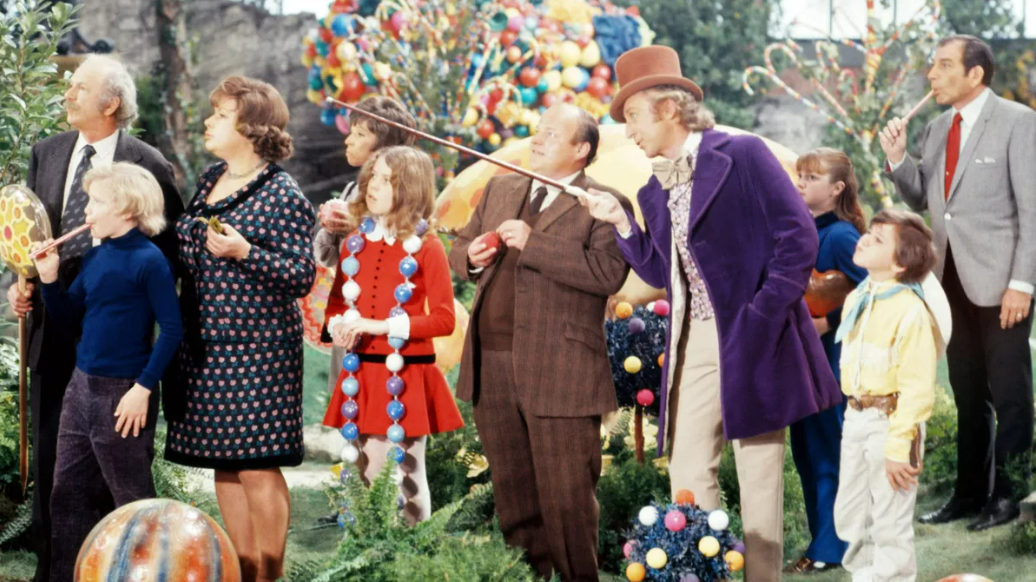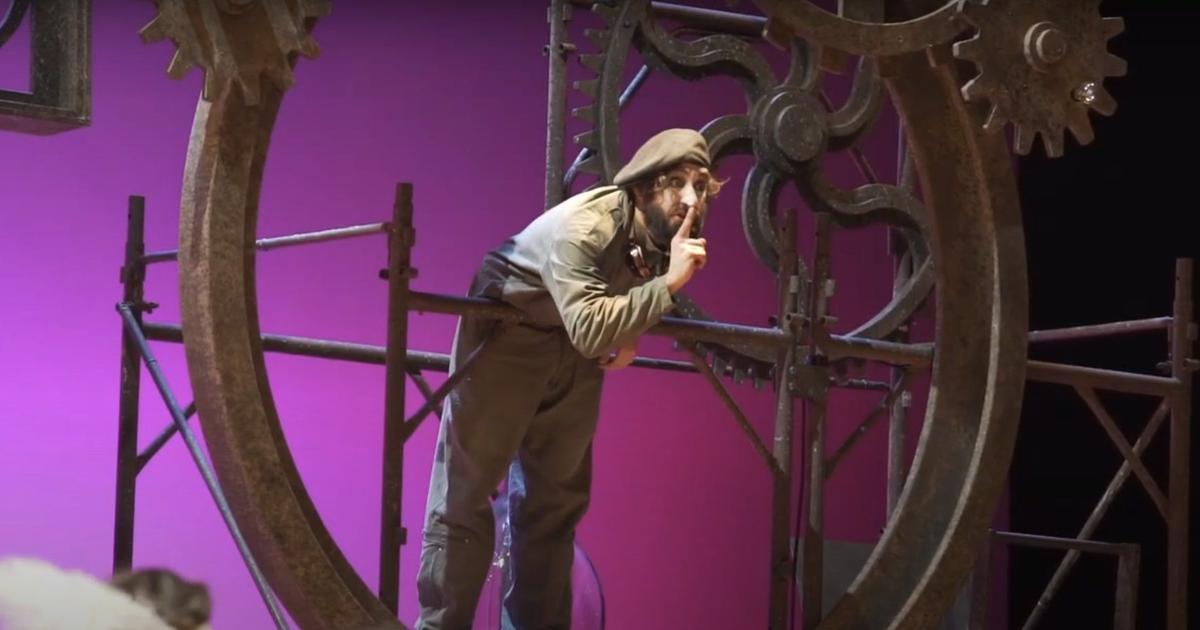Hubert Heckmann, agrégé, is a lecturer in medieval literature at the University of Rouen. He is a founding member of the Observatory of Decolonialism. He is also the author of
Cancel!
From the culture of censorship to the erasure of culture
which was published by Intervalles, in the collection “Le point sur les ideas”.
THE
FIGARO.
- According to the
Daily Telegraph
, Puffin's reissue, a powerful British publisher of children's books, of the works of Roald Dahl
,
has removed any passages deemed "offensive".
Can the literary text be reduced to a discourse that provokes adhesion, and which should therefore be evaluated from a moral point of view?
Hubert HECKMANN. -
The question is not new, especially concerning works addressed to children: Rousseau was already rebelling in
Émile ou de l'éducation
against the habit of making children learn the fables of La Fontaine: the animals there most often embody vices, lamented the philosopher.
The ant refuses alms to the cicada, the wolf exercises the law of the strongest over the lamb, the fox obtains the cheese by flattering the crow... Is the moral purity of the child corrupted by these fables which cynically reflect the injustices and vices of society?
Or should we take the risk of exposing the child to the cruelty of fictions that will make him see more accurately in himself and help him better understand the world as it is, and not as its educators? would dream it to be?
Read alsoThe books of Roald Dahl, author of Charlie and the Chocolate Factory, rewritten because deemed “offensive”
The
Telegraph
has identified the cuts that have been made in Roald Dahl's children's novels, and publishes an impressive list of rewritten passages.
While the publisher mentions a simple "language revision" to adapt it to contemporary readership, the comparison of the 2022 edition with that of 2001 reveals a veritable chainsaw massacre: hundreds of changes have been made, which affect not only the expression but the very meaning of the stories.
The inventory of these mutilations is an excellent barometer of the ambient conformism which would have both saddened and delighted Flaubert: the author of the
Dictionary of Received Ideas
worked on a
History of Official Art
in which, alongside a list of redacted classics, would have appeared the text of
Madame Bovary
showing one by one each of the cuts and corrections required by its first publisher.
Flaubert thus wanted to archive the stupidity of the censor, to keep an indelible trace of this other book that the censorship made by undoing his novel.
Indulging, in this spirit, in the game of differences with the two versions of Roald Dahl's work, is both to explore the extension of the domain of our susceptibilities and to rediscover certain characteristics of Dahl's style, which is sometimes particularly abrasive. , but also to experience the fundamental difference between the pleasure that comes from a good story and the boredom that secretes the conformity of good morals.
In
Fantastic Master Fox
,
"he was a kind of pot-bellied dwarf"
becomes
"he was pot-bellied"
.
In
Les deux rascals
,
"Oh, shut up, old witch!"
becomes
“Oh, shut up, old crow!”
.
The imagination is placed under the surveillance of political correctness: the dreams and terrors of childhood should no longer offend anyone.
Dahl's children's novels are considered dangerous because they take children seriously: they deal with evil and perversion.
Hubert Heckman
Dahl knew how to compose stories that appeal to children.
"I don't care what the adults think of it
," he used to say.
When we see the butchering operated in the new edition, we say to ourselves that since it is adults who buy books for children, it is therefore children that the publisher does not care about.
It does not matter that the story pleases them, it must reassure the customers, that is to say the parents, by offering no outlet for the artificial polemics of social networks.
We will therefore sell a Roald Dahl of good taste, without excess or violence.
On the box of a powder that Georges Bouillon put in his cauldron, one could read in the original version:
"Powder that makes dogs explode"
.
We will now read, in the redacted version:
"Powder That Makes Dogs Jump Like Fleas"
.
So ask kids which version they prefer!
It is so much more pleasant to imagine the dog exploding... and it is this child's pleasure that risks worrying and disturbing the most serious of parents, concerned about the message that is communicated to their child: incitement to speciesist hatred and cruelty to animals?
Apology of caniphobic terrorism?
Harmless stories are boring, but they don't offend anyone.
Dahl's style is based on exaggerated metaphors and grotesque, colorful adjectives. By attacking words deemed “offensive”, aren't we also attacking the author?
Indeed, Dahl is cruel with his characters, both in his language and in the situations he imagines.
This cruelty falls within the realm of fiction, and it is giving in to confusion to take it for wickedness aimed at individuals or groups, which should be protected in reality by rectifying the text.
One of the springs of the "cancel culture" that I analyze in
Cancel!
is the inability or refusal to distinguish fact from fiction.
Dahl's children's novels are considered dangerous because they take children seriously: they deal with the issue of evil and perversion, for example when they feature characters like witches who harm children in the name of what they consider to be the "Good".
The violence is filtered through Dahl's humor, which allows children to relish descriptions that shock or otherwise repel them, and thus release their tension through laughter.
Dahl's novels allow children to confront the problem or the mystery of evil: this is what they are accused of today.
Admittedly, by rewriting his work, one attacks the author, but that is not what I find the most serious here.
Most appalling is how this rewrite attacks children, and insults their intelligence.
By erasing all traces of negativity in the stories they are made to read, children are presented with the image of a sanitized, false world, devoid of the slightest interest.
Roald Dahl's heroes are children, revolted against stupidity, who escape, notably through reading, their fate and mediocrity.
It is this revolt that is condemned by witches in fiction and by censors in publishing houses, in both cases under falsely benevolent guises...
In
Sacred Witches
,
Matilda
or even
James and the Big Peach
, authority figures turn out to be hypocritical: the child protagonists of these works are not threatened by monsters but by adults whose hatred of children is disguised under the mask of kindness.
In
Sacrées witches
, the young narrator is at first reassured to have met
"splendid ladies"
and
"wonderfully nice people"
, but the facade quickly crumbles:
"Down with the children!"
, he hears the witches sing.
There is no worse betrayal of Roald Dahl's work than the current management of his rights, and the rewriting of the novels is part of the ideological offensive led by companies like Disney or Netflix.
Hubert Heckman
It is extraordinarily ironic that the rewriting that abolishes negativity, covering descriptions of human cruelty and stupidity with a benevolent mask, is a continuation of the hypocrisy of the witches themselves, as s he had to prevent the façade of beautiful appearances from crumbling.
In doing so, the rewrite directly attacks the freedom these little heroes gain through literature.
Of Matilda, Dahl writes,
“The books transported her to unknown worlds and introduced her to extraordinary characters who led exhilarating lives.
So she sailed on antique sailboats with Joseph Conrad, explored Africa with Ernest Hemingway and India with Rudyard Kipling.
The expurgated version no longer allows Matilda to borrow what she wants from the library, nor to deliver the keys to her imagination to the first stranger, even a genius novelist.
Matilda's imagination will now have to respect parity and abandon authors associated with colonialism:
“She visited 19th century properties with Jane Austen.
She went to Africa with Ernest Hemingway and to California with John Steinbeck.
Supervision of the reading of young girls was only neglected during a brief parenthesis, during the second half of the 20th century: a new conformism came to take over from the bourgeois moral order.
We bet that it is doomed to the same failure, provided that it provokes the same revolts.
Revolts worthy of
Matilda
!
Terms deemed “offensive” at one time may not be so at another. By rewriting books, are we making them a product intended only for the short term?
This acceleration of time, accompanied by a planned obsolescence of cultural products, is determined by commercial issues: Netflix acquired in 2021 the company which manages the rights of Roald Dahl.
While
Matilda
was discovering and conquering freedom through reading, the cultural industry wants to transform Dahl's novels into a “universe” declined in derived products.
Charlie 's Reader
and the Chocolate Factory
will remember how Dahl vitriolally denounced the debilitation of children by this cultural industry, embodied at the time by television.
There is no worse betrayal of Roald Dahl's work than the current management of his rights, and the rewriting of the novels is part of the large-scale ideological offensive led by companies like Disney or Netflix.
The rewriting of Dahl's novels has been entrusted to the collective
Inclusive Minds,
one of the many agencies that make it their mission to exercise the tyranny of minorities.
We see appearing in French the expression "sensitive readers", to translate English "
sensitivity readers
“: they are in fact identity censors, whom Salman Rushdie has just denounced about the affair which concerns us as a “police of sensitivities”.
The cultural industry relies on the sensitivities police to buy peace from identity entrepreneurs.
It is therefore preventive censorship based on the fear of losing money.
The purpose of the rewriting is to neutralize any possible controversy in advance, which quickly turns absurd: the colors are erased when it comes to people (James is no longer "white with fear" in James and the Big
Peach
), but also when it comes to objects: the tractors in
Fantastic Master Fox
are no longer black…
Roald Dahl's work responds magnificently in anticipation to the linguistic leveling and ideological censorship of which it is the victim.
Hubert Heckman
Dahl was criticized during his lifetime and was even once forced to rewrite certain passages of his children's novels himself.
In 1973, under pressure from the National Association for the Advancement of Colored People, Dahl partially rewrote
Charlie and the Chocolate Factory.
The Oompa Loompas were in the 1964 version
"a tribe of tiny Pygmies",
whom Willy Wonka had
"brought over from Africa"
to work in his factory for no remuneration other than cocoa beans.
Without acknowledging any racism in the original version, Dahl agreed to make Oompa Loompas creatures from "Loompaland" with "rosy white skin".
We know today the racist prejudices, in particular anti-Semitic, of Roald Dahl.
Should we therefore fear that his work is contaminated, or toxic?
We will only know by examining the text he wrote, and from this point of view also the rewriting is an absurdity, since it only camouflages the vices that some attribute to the work.
Not only does the rewriting take place in a very short time, since each reissue will have to operate an ideological update or bring it into line with the latest standards of moral conformity, but it makes the work escape History. : Dahl's novels no longer belong to their time, dated by its prejudices, but it is reviewed and corrected in the light of our own prejudices.
Rewriting the works of the past instead of analyzing and criticizing them amounts to rewriting History according to our desires.
It is no longer a critical approach, but a headlong rush into the production of a delirium that opposes reality, like totalitarian lies.
Besides, doesn't this rewriting also show absolute ignorance and contempt for the writing process? Is a book the sum of any words?
What strikes me in the rewritten version of Dahl's work is its impersonal character.
The
Inclusive Minds
collective , which redacted the texts, indicates on its site that it is working on "more authentic representation" and "better inclusion" in children's books.
In the project of the collective, the fictional characters are supposed
to represent
the readers and their different identities, by resembling them.
It is therefore necessary to erase everything that could prevent today's child from identifying with the character, and in particular to erase the sexual difference.
Thus the "father and mother" become "the parents", the "boys and girls" become "the children", etc.
where Georges' grandmother asks him to eat caterpillars: "
Caterpillars make you intelligent," says the old woman.
"Mama washes the cabbage leaves carefully," replied Georges.
"Mom is as stupid as you are," Grandma said.
Cabbage has no taste without a few boiled caterpillars or slugs.”
The version rewritten in 2022 obviously replaces the sentences where it is a question of “Mom” by “Dad and Mom”.
“Dad and Mum wash the cabbage leaves,” says Georges.
"Daddy and Mommy are as dumb as you are
," says Grandma.
What we gain in inclusion, since Mom and Dad share the household chores as well as the insults of their mother and mother-in-law, we lose in psychological acuity.
Read alsoRoald Dahl, a controversial personality
The witch is forced by censorship to have the exact same relationship with her daughter and son-in-law, despite hating each in a specific way.
The story loses all its salt if the relationships become interchangeable.
The specific domain of fictional literature is the particular and not the general.
A novel can reach the universal through the description of a singular situation, but if it aims at the general it misses its target for sure.
Roald Dahl has carefully chosen the words that best describe the specific situations he has imagined, with his cruel humor.
These changes won't help anyone identify with the characters better (there was never a need to look like the heroes you identify with), but they ring so hollow that
they prove by the absurd that the characters do not serve to represent the readers.
The reader, whether child or adult, will always prefer a character different from him but specific, singular, rather than a conceptual abstraction supposed to represent in a more inclusive way more open identities.
We can also establish a connection with the recent version of ChatGPT: in the game of conformism, syntactical poverty and unambiguous vocabulary, artificial intelligence risks, in the long term, defeating us. Is freedom of tone not also a bulwark against AI?
Where ChatGPT produces the same, by recycling previously digested speeches, the literary work confronts the other.
This otherness can upset, but true respect for the child is not to avoid hitting him, it is to respect the singularity of his intelligence.
Instead of locking him into conformism, he must be given books to read which will allow him to come out of himself so that he can open up to new perspectives, discover complex cultural and artistic forms and ambiguities that serve no cause and cannot be reduced to any message, but which will allow him to enrich his means of apprehending the world.
Read alsoRoald Dahl, a godsend for Netflix
Roald Dahl's work responds magnificently in anticipation to the linguistic leveling and ideological censorship of which it is the victim, and in this it confirms its status as a literary work.
The Oompa Loompas from
Charlie and the Chocolate Factory
send us a message full of nostalgia but also hope:
“What did you do when you were little
To vitaminize your mind?
It's forgotten ?
Should we say it
out loud?
THE… CHILDREN… KNEW… READ!”










/cloudfront-eu-central-1.images.arcpublishing.com/prisa/KMEYMJKESBAZBE4MRBAM4TGHIQ.jpg)


